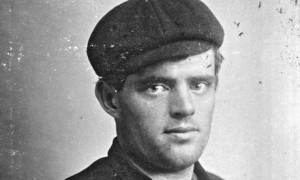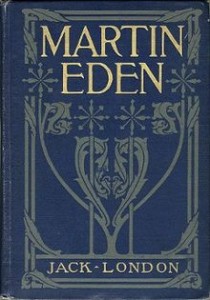by James Scott Bell
@jamesscottbell
 If I may riff off Brother Gilstrap’s recent post, I think there are generally two types of writers. There are “natural” storytellers. John is one of them. I think he’s shared this here on TKZ, but I remember him telling me about getting virtually the entire story for Nathan’s Run while on a long drive. How’s that for nice?
If I may riff off Brother Gilstrap’s recent post, I think there are generally two types of writers. There are “natural” storytellers. John is one of them. I think he’s shared this here on TKZ, but I remember him telling me about getting virtually the entire story for Nathan’s Run while on a long drive. How’s that for nice?
Other writers have to dig in hard ground to find, stimulate, and coax ideas. Then take the good ones to the workshop and figure out the best way to develop them into stories. That would be me. When I started out on this writing journey I dove into study of the craft. I devoured writing books and subscribed to Writer’s Digest. I read popular fiction analytically to unpack how successful writers did things. I studied movies with an eye toward learning structure.
And when it came to finding ideas worth turning into full-length fiction, I found I couldn’t sit there waiting for one to show up. I had to follow Jack London’s advice: “Don’t loaf and invite inspiration; light out after it with a club.”
Early on I read How to Write Best Selling Fiction by Dean Koontz. He has a section in there on finding story ideas. Among his suggestions:
Read widely. Newspaper stories can present the germ of an idea. Nonfiction on various subjects, too.
Write narrative hooks. Just sit at the keyboard and type hooks (first lines) until “you find one that is so intriguing that you simply must find out what happens next.” One day Koontz wrote:
“You ever killed anything?” Roy asked.
He had no idea who Roy was or what he meant. But he sat there looking at it and it came to him (“out of my subconscious mind”) that Roy should be a boy of fourteen. From there his imagination started chugging and he wrote two pages of a conversation between Roy and a boy he named Colin. When he was finished he knew the book was going to be about the duality of human nature (good and evil), that Roy was the villain, and that the book would be fast-paced and suspenseful. Indeed it was, and became an early bestseller called The Voice of the Night.
Titles. Write out titles by the bunch until one of them tickles your fancy.
Characters. Start writing about an intriguing character and pile on backstory details. When one starts to take on life, ask:
- What does the character fear more than anything else in the world?
- What would be the very worst thing that could happen to him?
- What event would throw his life into complete turmoil?
So I scheduled a weekly creativity time. A half hour to an hour sitting in a local coffee joint doing these exercises, just letting the ideas flow. After a few weeks I noticed that my creativity muscle was growing stronger. Indeed, it began working “on its own.” I’d be driving down the street and see a billboard and suddenly I’d be asking What if? What if that happy couple clinking champagne glasses is about to be blown up by a bomb?
I kept all my ideas in a file. When one of them cried out for further attention I put into “development.”
My first step in the development process is what I call a “white hot document.” This idea comes from Dwight Swain’s classic Techniques of the Selling Writer. You start a document that is an exercise in “focused free association.” You just start writing what comes to mind, go off on tangents, explore rabbit trails. Ideas for scenes, themes, characters, plot developments—write them all down without any intrusion from your inner editor.
You put this aside and come back the next day to edit and annotate. You take what’s most emotional and exciting for you and develop it further with more free association. Do this for several days and you’ll have a solid foundation for a plot. Swain wrote: “The important thing, always, is not to sit idly waiting for the feathers to grow. Don’t just hope for ideas. Hunt them down! Find a springboard! Develop a plan of action!”
So unless you are a natural storyteller, make it a point to exercise your imagination on a regular basis. Play games. Go wild. You’ll find good ideas soon enough and your creativity synapses will grow stronger.
Then all you have to do is write the novel. And the one after that. And the one…
What kind of storyteller are you—natural or a digger in hard ground? Where do your ideas come from? Do you wait for them to show up or do you light out after them with a club?


